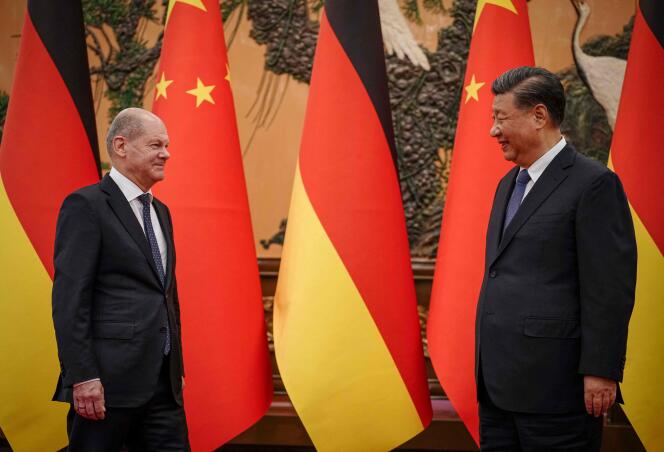


Nine months ago, on July 13, 2023, the German government published its "Strategy on China," a 64-page document whose rationale is stated clearly: "China has changed. As a result of this and China's political decisions, we need to change our approach to China." At the heart of the new approach advocated by Berlin was the goal of "de-risking" – in other words, making the German economy less dependent on a China that has become more repressive internally and more offensive externally.
One year after the outbreak of war in Ukraine, which reminded Germany just how dangerous it is to rely to such an extent on Russian gas, the country declared that it had learned its lesson. When Foreign Minister Annalena Baerbock presented Berlin's new China strategy to the press, she asserted that Germany had "learned from [its] dependency on Russia," which she called a "mistake we can't afford to make a second time."
Nine months on, what remains of the rhetoric? Olaf Scholz's visit to China, scheduled from Sunday, April 14 to Tuesday, April 16, clearly suggests: not much. The length of the trip – three full days in China, the longest the chancellor has spent abroad since taking office in December 2021 – and the importance of the delegation – the ministers of transport, agriculture, and the environment, and several CEOs, including those of Siemens, Bayer, Mercedes, BMW, and ThyssenKrupp – make this trip reminiscent of others.
"A trip almost like the Merkel era," ran the headline in the Frankfurter Allgemeine Zeitung on Thursday, summing up a widely shared sentiment. In reality, the current German chancellor's policy towards China is one of continuity far more than a break with his predecessor. German exports to China increased by 136% between 2009 and 2021 and are now double those of France, the UK, and Italy combined, according to a study published in February by the Berlin-based Rhodium Group. Over the past eight years, Germany's share of EU direct investments in China has risen to 58% – 20 percentage points higher than in the previous decade.
The current German chancellor has already shown that he prefers rapprochement to confrontation with China – on his first visit to China, in November 2022. The visit took place just 12 days after the 20th National Congress of the Chinese Communist Party, at which President Xi Jinping was triumphantly re-elected to a third term.
Even more importantly, it was held a week after the chancellor had given the green light to the acquisition of a stake in a container terminal in the port of Hamburg, the city where Scholz was the mayor from 2011 to 2018, by the state-owned Chinese company COSCO. At the time, the decision was met with strong resistance within his government, with no fewer than six ministers speaking out against an operation that risked paving the way for a foreign group to take control of a strategic infrastructure.
You have 56% of this article left to read. The rest is for subscribers only.
